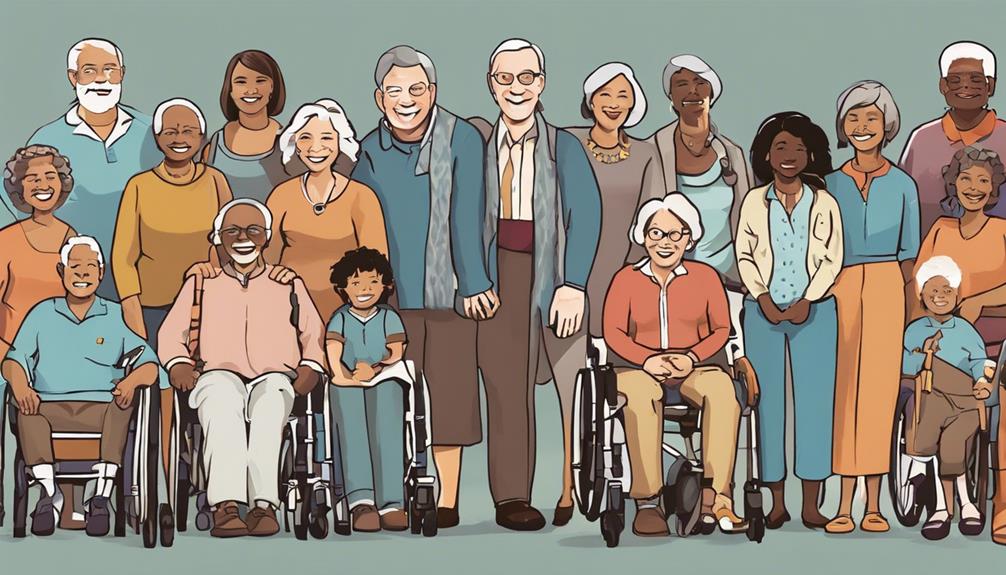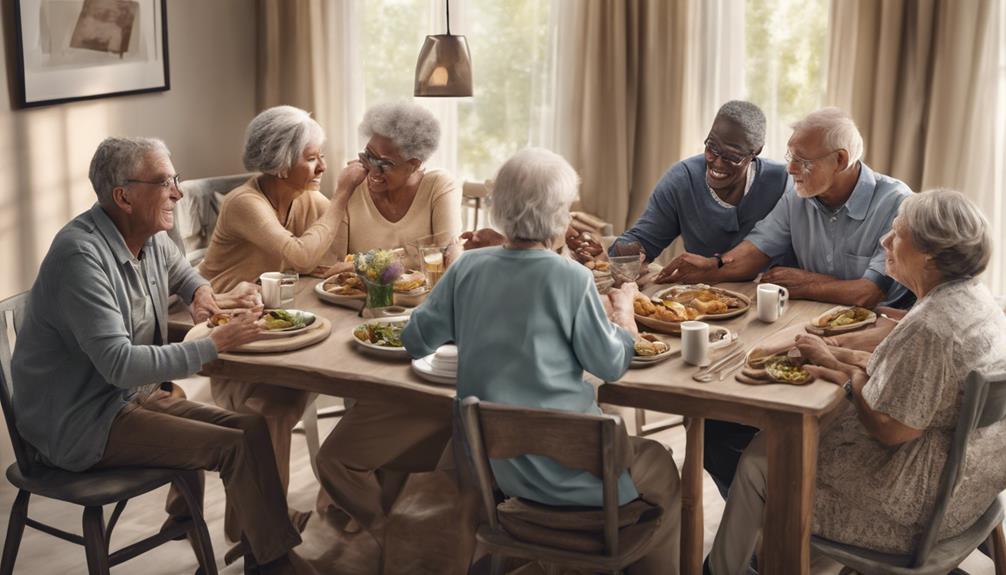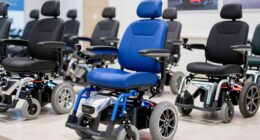To better understand how dementia impacts life expectancy and to effectively navigate end-of-life care, it is important to acknowledge signs, receive appropriate healthcare support, and seek guidance and emotional assistance. Complications such as infections and falls can heighten mortality risks, making care planning essential for comfort and quality of life. Caregivers, healthcare professionals, and medical treatments all play pivotal roles in providing optimal care. Compassion, guidance, and pain management medication are often necessary for those in late-stage dementia. By supporting families through grief and seeking professional help, the best end-of-life care can be achieved.
Key Takeaways
- Engage in care planning for comfort and quality of life.
- Seek medical treatments to manage symptoms and improve quality of life.
- Ensure emotional support for individuals and caregivers.
- Monitor for complications like infections and falls.
- Consider end-of-life care options for comfort and dignity.
Understanding Mortality in Dementia
Understanding mortality in dementia reveals the complex interplay between the disease progression and various health complications that contribute to higher mortality rates among individuals with dementia. Complications such as infections, falls, and eating difficulties often lead to a greater risk of mortality in those with dementia.
As the disease advances, individuals may experience symptoms like speech limitations, eating challenges, and loss of mobility, signaling the nearing end of life. Care planning becomes vital during this stage to guarantee comfort and quality of life.
Pneumonia, a common cause of death in individuals with dementia, underscores the importance of managing health proactively. Late-stage dementia is marked by the need for assistance in daily tasks, reduced food intake, and loss of speech comprehension, necessitating specialized care.
Factors Influencing Lifespan

When considering factors that influence lifespan in dementia, it's important to understand the impact of caregiving. Caregivers play a significant role in providing quality care. The availability of medical treatments is another crucial factor to consider. Medical interventions can help manage symptoms and improve the quality of life for individuals with dementia. Emotional support is also essential for both the individual with dementia and their caregivers. This support helps them navigate the challenges associated with the disease.
Impact of Caregiving
Caregiving profoundly influences the lifespan of individuals with dementia, impacting their overall well-being and health outcomes. Caregivers might notice changes in the person's condition, such as symptoms getting worse, which can affect their longevity.
Healthcare professionals play an essential role in supporting people with dementia and their caregivers. Making decisions about treatment options and providing guidance can help improve the quality of life for those affected.
Additionally, caregivers need to be vigilant about preventing complications like pressure ulcers, as these can lead to further health issues and a decline in overall health. By offering support and monitoring the individual closely, caregivers can help enhance the well-being and potentially extend the lifespan of those with dementia.
Medical Treatments Available
In considering factors that influence lifespan in individuals with dementia, medical treatments play a crucial role. When maneuvering the dying process with dementia, it's essential to understand the medical treatments available. The table below outlines key aspects related to end of life care, advance care, and hospice care, as recognized by organizations like the Alzheimer's Society:
| Medical Treatments Available | Description |
|---|---|
| End of Life Care | Focuses on comfort and dignity in the dying process. |
| Advance Care | Involves planning preferences for future medical care. |
| Hospice Care | Provides specialized care for terminally ill patients. |
Understanding these options can help individuals with dementia and their families make informed decisions about their care.
Emotional Support Needs
Coping with mortality with dementia involves recognizing the emotional support needs that impact factors influencing lifespan in individuals with this condition. Providing the right care and support can make a significant difference as individuals approach the end of their life.
Here are some key emotional support needs to take into account:
- Family and Friends: Having loved ones around can offer comfort and companionship during difficult times.
- Respect for Privacy: Honoring the individual's privacy and dignity is essential in maintaining their sense of self-worth.
- Open Communication: Encouraging transparent and honest communication can help address fears and concerns about death.
- Understanding End of Life: Educating oneself about the end of life process in dementia can help in providing appropriate care.
- Creating a Supportive Environment: Establishing a nurturing and supportive environment can promote emotional well-being during this challenging time.
Signs of End-of-Life in Dementia

As dementia progresses towards the end stages, speech limited to single words or phrases becomes a common sign of nearing end-of-life. Alongside this, needing assistance with daily activities, such as grooming and eating, indicates the advancement of dementia towards its final phases.
Eating challenges and reduced food intake are prevalent signs as dementia nears the end of life. Additionally, bowel and bladder incontinence often occur in late-stage dementia, signaling the advanced phase of the disease. Loss of mobility, which can lead to being bed-bound, is a significant indicator that the end of life in dementia may be near.
Recognizing these signs can help caregivers and healthcare providers offer appropriate support and ensure the comfort of individuals with dementia as they navigate this challenging stage. It's important to provide compassionate care and address the evolving needs of those reaching the end-of-life phase in their dementia journey.
Late-Stage Dementia Characteristics
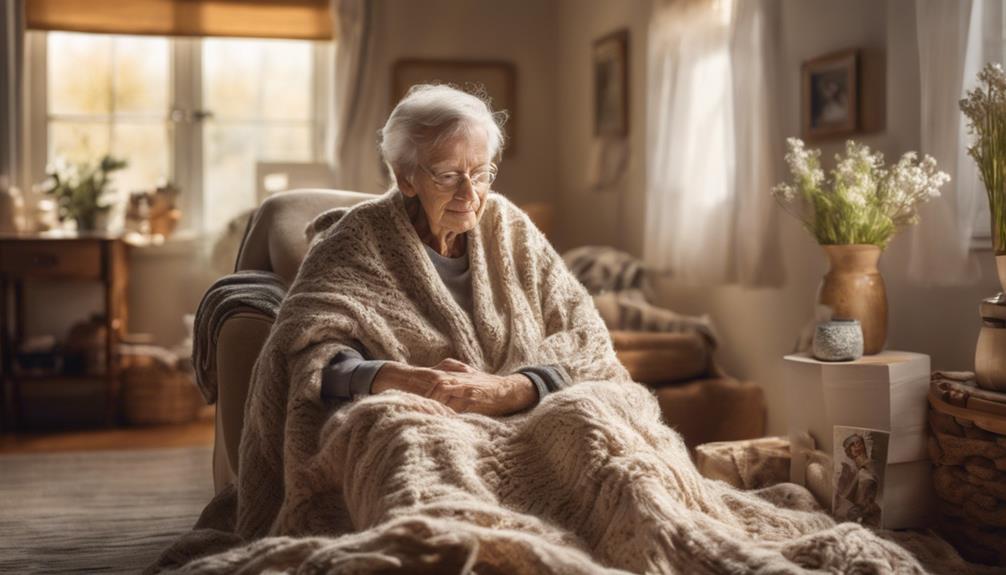
Moving through the late stages of dementia, individuals may exhibit a significant decline in mobility and communication abilities, presenting unique challenges for both caregivers and healthcare providers. In late-stage dementia, the following characteristics are commonly observed:
- Loss of Mobility: Individuals may lose the ability to walk or stand independently.
- Communication Limitations: Communication becomes severely limited, with comprehension of speech diminishing.
- Swallowing Issues: Swallowing problems and reduced food intake are common indicators of disease progression.
- Bowel and Bladder Control: Problems with bowel and bladder control often worsen, necessitating increased assistance.
- Changes in Breathing: Rapid deterioration, unconsciousness, and alterations in breathing patterns can signal the dying process.
Understanding these late-stage dementia characteristics is essential for providing appropriate care and support to individuals experiencing these challenges. Caregivers and healthcare providers play an important role in ensuring comfort and dignity for those in late-stage dementia.
Dying Process in Dementia

As individuals with dementia near the end of their lives, it's important to recognize signs such as difficulty swallowing and increased agitation. These can indicate that the person is reaching the final stages of their journey with dementia.
Understanding the progression of dementia, managing end-of-life decisions, and supporting family members through grief are vital aspects to take into account during this challenging time.
Understanding Dementia Progression
How does dementia progression impact the dying process in individuals with late-stage dementia?
Late-stage dementia brings challenges like swallowing difficulties, which can lead to reduced food intake affecting the quality of life. Loss of mobility is common, often resulting in individuals becoming bed-bound and needing full assistance. Bowel and bladder control problems further impact daily life in these end stages.
As dementia progresses, speech comprehension diminishes, and individuals may become unconscious rapidly during the dying process. Changes in breathing patterns are also typical signs that the end is near. Understanding these aspects can help caregivers provide the best possible support and care for those with late-stage dementia.
Managing End-Of-Life Decisions
Managing end-of-life decisions for individuals with late-stage dementia involves grasping the impact of dementia progression on the dying process. As a person with dementia reaches the end stages, challenges with daily activities, eating difficulties, incontinence, and loss of mobility become more pronounced.
Providing help and support during this time is important. Understanding that death is a natural part of life, even though it may be challenging to witness in a loved one with dementia. Ensuring comfort and dignity for the person with dementia is paramount.
Care for a person in the late stages involves addressing their needs with compassion and respect. By acknowledging these challenges and seeking guidance from healthcare professionals, families can navigate the dying process with empathy and understanding.
Supporting Family Through Grief
Supporting our families through the grief that accompanies the dying process in dementia requires understanding and acknowledging the unique emotional impact experienced by each member.
- Be empathetic and listen actively to family members' feelings.
- Encourage open communication and provide a safe space for expressing emotions.
- Offer practical support such as assisting with daily tasks or arranging for respite care.
- Connect family members with grief counseling services or support groups specializing in Alzheimer's and dementia.
- Validate each family member's grief journey and offer reassurance that their feelings are normal and valid.
Healthcare Support in Late-Stage Dementia

Handling the challenges of late-stage dementia often involves organizing healthcare support to guarantee the comfort and well-being of individuals in this advanced stage of the disease. Healthcare professionals play a crucial role in explaining the changes that occur during the end stages of dementia progression to caregivers and family members.
Medication is commonly used for pain management and to alleviate distress in people with late-stage dementia. It's important to consult with healthcare providers for guidance on managing late-stage dementia care effectively. Alternative methods of administering medication can be explored to secure the comfort of individuals with dementia.
Additionally, seeking support from online dementia support forums can provide valuable information and assistance to caregivers facing late-stage dementia challenges. By collaborating with healthcare professionals and utilizing available resources such as dementia support forums, caregivers can enhance the quality of care provided to individuals in late-stage dementia.
Seeking Guidance and Support
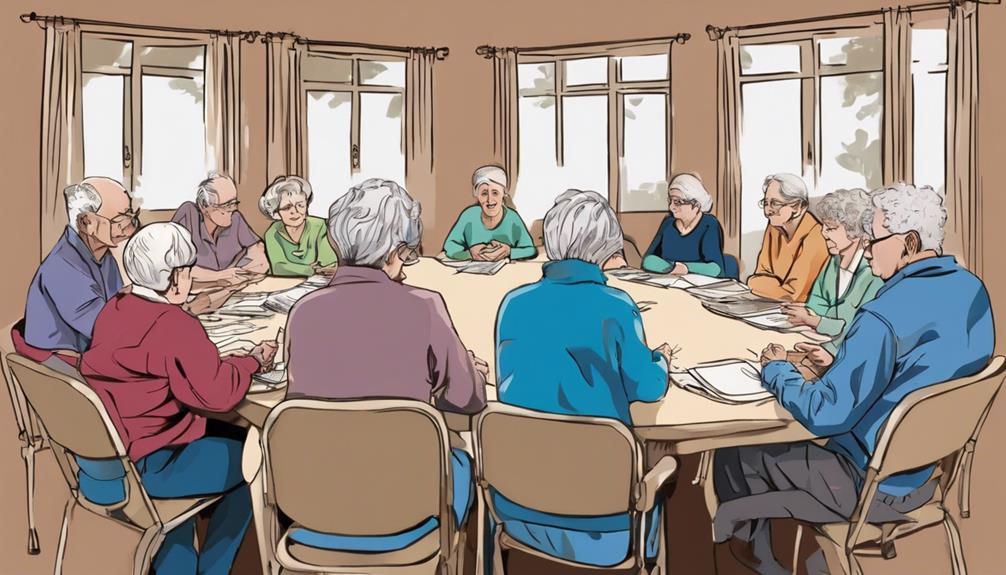
Handling the complexities of dementia and mortality often requires seeking guidance and support from healthcare professionals specializing in dementia care. When facing the end stages of dementia, it's essential to have a strong support system in place. Here are some key steps to ponder:
- Connect with support groups: Engaging with others who are going through similar experiences can provide valuable insights and emotional support.
- Consult with legal experts: Ensuring that legal matters, such as wills and power of attorney, are properly addressed is vital for end-of-life planning with dementia.
- Explore resources: Organizations like the Alzheimer's Society or Dementia UK offer valuable information and support for addressing mortality concerns.
- Involve a palliative care team: Collaborating with a palliative care team can provide holistic support and guidance for end-of-life care with dementia.
- Seek guidance from healthcare professionals: Consulting with experts in dementia care can help navigate end-of-life decisions effectively.
Frequently Asked Questions
How Does Someone With Dementia Deal With Death?
We support individuals with dementia in understanding death by providing simple explanations and emotional support. Addressing practical matters like funeral plans can help navigate this concept. Caregivers play an important role in this process.
What Are 3 Things to Never Do With Your Loved One With Dementia?
We never argue, rush, or assume with our loved ones with dementia. Patience, empathy, and simplicity are key. By avoiding frustration and confusion, we create a safe and understanding environment for those we care for.
When Is the Right Time to Put a Dementia Patient in a Home?
When we consider placing a dementia patient in a care home, it's essential to assess their safety, care needs, and our ability to support them. Factors like behavioral challenges and wandering may signal the right time for this decision.
Do Dementia Patients Do Better at Home or in a Nursing Home?
We believe dementia patients generally do better at home when surrounded by familiar environments and loved ones. Home care can provide comfort and stability, enhancing quality of life. However, individual needs and circumstances should always be considered.
Conclusion
To summarize, managing mortality with dementia requires recognizing the signs of end-of-life and seeking healthcare support. This process involves careful coordination between healthcare providers, caregivers, and family members to ensure the individual’s comfort and dignity. It is crucial to have open discussions early on to establish the person’s wishes and care preferences. Endoflife care for dementia focuses on minimizing distressing symptoms, providing emotional support, and maintaining the best quality of life possible during the final stages.
Remember, just like a flower wilts in the winter, our loved ones with dementia may exhibit changes as they approach the end of their journey.
By being mindful of these signs and seeking guidance, we can guarantee they receive the care and support they need during this challenging time.


